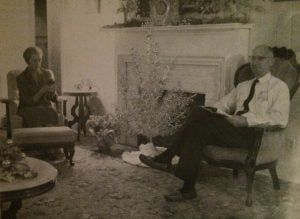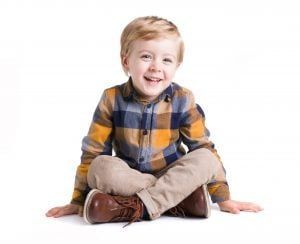Then He Turned to Stone

Over thirteen years ago my sister-in-law’s father died after an extended illness. As I stood in line, waiting to speak with her and the rest of the family, his grandson—my nephew—spotted me. Leaving his grandmother’s side, he came and took me by the hand, leading me to the head of the casket . . . and in front of all those people who were patiently waiting their turn. He stood, solemnly looking at his grandfather, and then he began.
“He was sick for a long time and his body was tired.” His grandmother now stood beside him, absentmindedly nodding as he continued. “The doctors tried but they just couldn’t make him better . . .” His grandmother continued to nod as she gazed at her husband “so he died . . . and then he turned to stone.” At that point she quit nodding.
Years later, my grandsons came to visit me at work; we were all in bookkeeping when Wilson started toward the door. “Mona, can we go upstairs to that room? That room that has all those little beds in it? You know, those little beds that the dead people sleep in?” Then, as we started out the door to go upstairs to the room with all the little beds, he turned to me and asked, quite innocently, “Mona, when are you going to be dead?”
Children are creative, inquisitive little beings. They will ask you absolutely anything with no reservations whatsoever, and if you do not directly answer their questions, they will make up their own. And sometimes, they’ll make up their own even when you do answer their questions. That’s how dead people turn to stone.
Little ones learn how to be human beings by watching us. They learn how to interact with others, how to respond in different situations, when to be cautious and when to throw caution to the wind. And if we are not careful, we will teach them to fear that which is inevitable in this life.
Talk honestly with a child about death. You don’t have to give them every gory detail of someone’s demise, but you don’t have to sugar coat it, either. Children are stronger than we give them credit for being and smarter than we often realize. They see and hear far more than we might want them to, and to gloss over the loss of an important someone in their lives when we are deeply distressed is an open invitation to anxiety and mistrust on their part. Despite our best efforts at hiding the truth, children will see right through us.
So when someone in your child’s life takes a permanent leave of absence, please don’t assume that your child is better off not participating in the rituals of the visitation and funeral, if those rituals take place. By allowing them to be a part of the process they begin to understand that the process is natural. It may not be pleasant and it may not be something we look forward to, but it is the natural order of things and an event we will all face numerous times before our own. To deny children that knowledge and that experience also denies them the opportunity to understand why someone they loved is no longer with them. And, as we have already pointed out, if they do not have the answers they seek, they will make up their own.
The post Then He Turned to Stone appeared first on Shackelford Funeral Directors | Blog.












